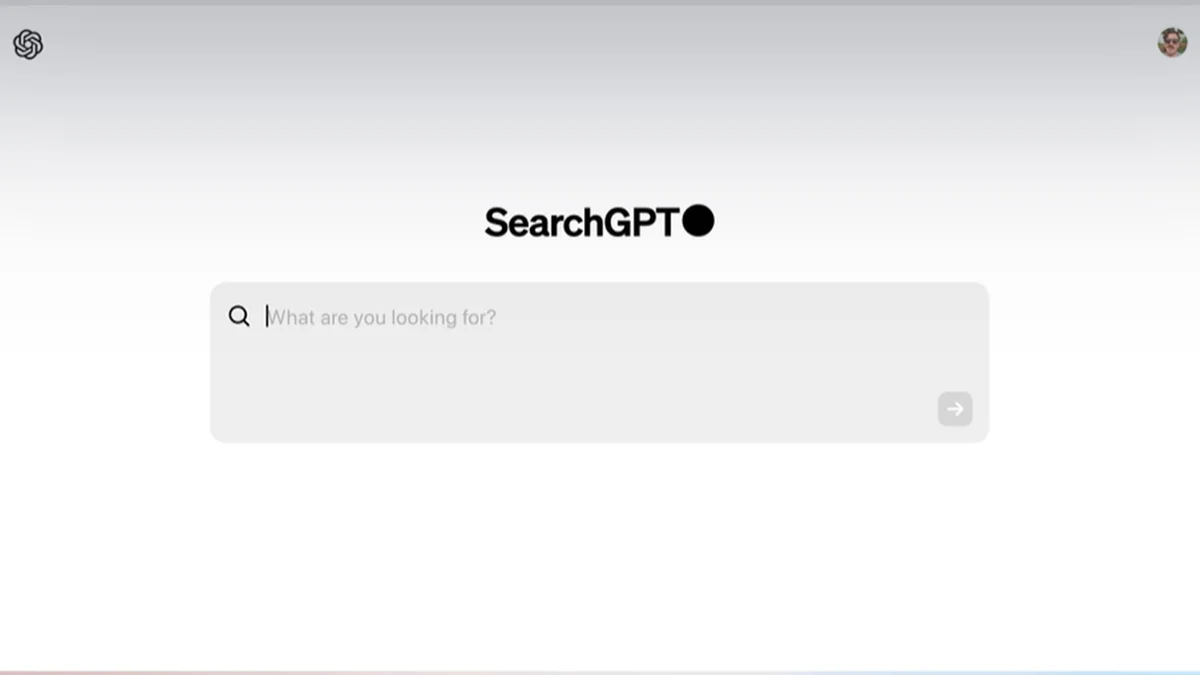Necessary Always Active
Necessary cookies are required to enable the basic features of this site, such as providing secure log-in or adjusting your consent preferences. These cookies do not store any personally identifiable data.
|
||||||
|
||||||
|
||||||
|

OpenAI has started testing its revolutionary AI-based search engine dubbed SearchGPT. The new OpenAI SearchGPT not only challenges startups such as Perplexity, it also threatens big search engines like Google and Bing that dominate the online search space.
According to TechCrunch, SearchGPT is designed to give users timely responses to questions. The search feature draws answers from wide web sources. Although the search engine is being tested among limited users, OpenAI’s future plans include integrating the tools into ChatGPT.
Users can interact with SearchGPT using natural language, the way they do with ChatGPT. They will be able to follow up with additional questions too.
However, unlike ChatGPT that uses older data to generate responses, OpenAI SearchGPT responses are informed by up-to-date information. Responses contain online links to relevant sources. The tool also displays a sidebar with more links to relevant information.
“Getting answers on the web can take a lot of effort, often requiring multiple attempts to get relevant results. We believe that by enhancing the conversational capabilities of our models with real-time information from the web, finding what you’re looking for can be faster and easier,” OpenAI said in a blog post.
The ChatGPT search engine could cement generative AI in online search. Generative AI is capable of creating original text and other media formats, which is the future of finding answers online. Google and other search engines have tried this idea by incorporating AI-generated responses and chatbots into search experiences.
However, this future is not guaranteed considering the propensity of AI tools to confidentiality. SearchGPT launched months after Google introduced its AI-overview feature that displayed summaries on top of some search result pages. The summaries eliminate the need for users to click multiple links to find the answers they need. Google stopped using this feature after it generated false, nonsensical responses to some queries.
OpenAI could face backlash from publishers depending on how its AI-powered search engine cites and presents information sources. In recent months, media organizations and news outlets have sued the company due to alleged copyright violations. These outlets include New York Times, the Intercept, the Chicago Tribune, among other local papers.
The publishers claimed that OpenAI trained its AI models on their published content illegally, without compensation or consent. As a result, the company profited by plagiarizing their protected material. Open AI has since refuted claims on illegal use of copyrighted data to train its ChatGPT model. The company argued that its AI models generate new products that fall under the fair use doctrine.
OpenAI is testing SearchGPT at a time when Google is facing a looming legal decision in an antitrust lawsuit by the US Department of Justice. The legal suit alleged that Google monopolized the online search industry via multi-billion dollar deals with big tech companies to turn it into default browser on their devices. These companies include Samsung and Apple.